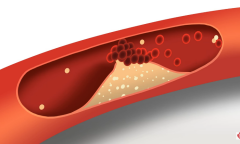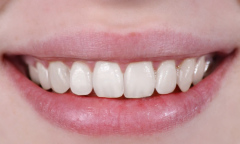By KM Diaz, | May 09, 2017

Resveratrol is an antioxidant usually found in some wine and fruits. (YouTube)
Researchers from Boston University in Massachusetts suggest that red wine could decrease the arterial stiffness of people who have type 2 diabetes.
Resveratrol is an antioxidant usually found in some wines and fruits. Now, the natural compound could also protect the heart to combat cardiac disease by reducing the inflammation to improve the vascular function.
Like Us on Facebook
Resveratrol slows down the early aging of arteries through SIRT1 activation - a gene that prevents the progress of aging. The gene particularly reduces the stiffness of the aorta, the main artery that delivers blood from the heart throughout the body.
In the new study, researchers have discovered that 300 mg of resveratrol per day decreased the aortic stiffness by 9 percent among patients with type 2 diabetes. The effect of resveratrol was also seen in 100 mg daily intake, which reduced aortic stiffness by 4.8 percent. Meanwhile, patients who took the placebo treatment have felt the opposite effect, their aortic stiffness increased.
Dr. Naomi M. Hamburg, the lead author of the research, explains that resveratrol's effect focused on enhancing the structural variations in the aorta rather than the blood vessel relaxation, and those who have normal aortic stiffness may not get the same benefit.
Diabetic patients are more likely to encounter premature aging of the arteries than healthy individuals, which means the finding suggests that resveratrol is beneficial to people with diabetes.
However, researchers also said that the result is only based on a short-term study involving 57 participants who have type 2 diabetes with an average of 56 body-mass indexes (BMI) calculations, which are considered to be obese.
The researchers applied carotid-femoral pulse wave velocity (CFPWV) test to identify the aortic stiffness of patients after taking daily doses of 100 mg/day of resveratrol for two weeks, and then 300 mg/day in two weeks, and after being administered a polyphenol-free placebo for four weeks.
In the overall result, resveratrol treatment lowered aortic stiffness, though the changes were not statistically significant. Resveratrol's effect was only observed in the subgroup of 23 patients who have high arterial stiffness at baseline after receiving 100 mg/day and 300 mg/day of resveratrol. Researchers agreed that their findings need more extensive research.
At the moment, there are no significant and harmful side effects recorded among those who consume resveratrol. But, abdominal pain, mild nausea, diarrhea, and flatulence were noticed in patients who took higher than 1 gram/day of resveratrol for up to 29 consecutive days.
Furthermore, researchers suggest that diabetic patients who want to use resveratrol supplements must consult their doctor first since dietary supplements are not required to be standardized in the U.S.
-
Use of Coronavirus Pandemic Drones Raises Privacy Concerns: Drones Spread Fear, Local Officials Say

-
Coronavirus Hampers The Delivery Of Lockheed Martin F-35 Stealth Fighters For 2020

-
Instagram Speeds Up Plans to Add Account Memorialization Feature Due to COVID-19 Deaths

-
NASA: Perseverance Plans to Bring 'Mars Rock' to Earth in 2031

-
600 Dead And 3,000 In The Hospital as Iranians Believed Drinking High-Concentrations of Alcohol Can Cure The Coronavirus

-
600 Dead And 3,000 In The Hospital as Iranians Believed Drinking High-Concentrations of Alcohol Can Cure The Coronavirus

-
COVID-19: Doctors, Nurses Use Virtual Reality to Learn New Skills in Treating Coronavirus Patients











